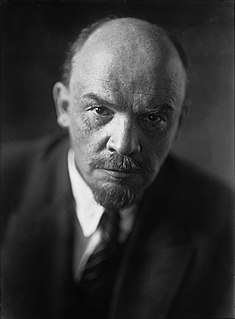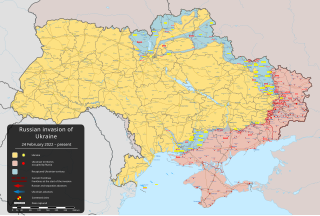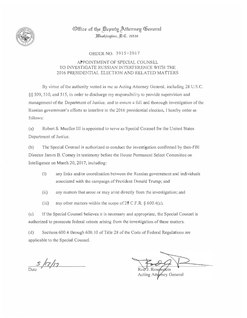
Mikhail Sergeyevich Gorbachev was a Russian and Soviet politician who served as the last leader of the Soviet Union from 1985 to the country's dissolution in 1991. He served as General Secretary of the Communist Party of the Soviet Union from 1985 and additionally as head of state beginning in 1988, as Chairman of the Presidium of the Supreme Soviet from 1988 to 1989, Chairman of the Supreme Soviet from 1989 to 1990 and the only President of the Soviet Union from 1990 to 1991. Ideologically, Gorbachev initially adhered to Marxism–Leninism but moved towards social democracy by the early 1990s.

Russia, officially the Russian Federation (RF), is a transcontinental country spanning Eastern Europe and Northern Asia. It is the largest country in the world by area, covering over 17,098,246 square kilometres (6,601,670 sq mi), and encompassing one-eighth of Earth's inhabitable landmass. Russia extends across eleven time zones and borders fourteen countries by land. Russia also shares narrow maritime boundaries with two countries. It is the ninth-most populous country in the world and the most populous country in Europe, with a population of 146 million. The country's capital and largest city is Moscow, the largest city entirely within Europe. Saint Petersburg is Russia's cultural centre and second-largest city. Other major urban areas include Novosibirsk, Yekaterinburg, Nizhny Novgorod and Kazan.
Russian is an East Slavic language mainly spoken across Russia. It is the native language of the Russians, and belongs to the Indo-European language family. It is one of four living East Slavic languages, and is also a part of the larger Balto-Slavic languages. Besides Russia itself, Russian is an official language in Belarus, Kazakhstan, and Kyrgyzstan, and is used widely as a lingua franca throughout the Caucasus, Central Asia, and to some extent in the Baltic states. It was the de facto language of the former Soviet Union, and continues to be used in public life with varying proficiency in all of the post-Soviet states.

The Soviet Union, officially the Union of Soviet Socialist Republics (USSR), was a transcontinental country that spanned much of Eurasia from 1922 to 1991. A flagship communist state, it was nominally a federal union of twenty one republics; in practice, both its government and its economy were highly centralized until its final years. It was a one-party state governed by the Communist Party of the Soviet Union, with the city of Moscow serving as its capital as well as that of its largest and most populous republic: the Russian SFSR. Other major cities included, Leningrad, Kiev, Minsk, Tashkent, Alma-Ata, and Novosibirsk. It was the largest country in the world, covering over 22,402,200 square kilometres (8,649,500 sq mi) and spanning eleven time zones.

Ukraine is a country in Eastern Europe. It is the second-largest European country after Russia, which it borders to the east and northeast. Pre-war Ukraine covered approximately 600,000 square kilometres (230,000 sq mi), and was the eighth-most populous country in Europe, with a population of around 41 million people. It is also bordered by Belarus to the north; by Poland, Slovakia, and Hungary to the west; and by Romania and Moldova to the southwest; with a coastline along the Black Sea and the Sea of Azov to the south and southeast. Kyiv is the nation's capital and largest city. The country's national language is Ukrainian, and most people are also fluent in Russian.

Vladimir Vladimirovich Putin is a Russian politician and former intelligence officer who has been serving as the president of Russia since 2012, having previously served between 2000 and 2008. He was the prime minister of Russia from 1999 to 2000 and again from 2008 to 2012.

Catherine II, most commonly known as Catherine the Great, was the last Empress of Russia and the longest-ruling. She came to power following the overthrow of her husband and second cousin, Peter III. Under her long reign, inspired by the ideas of the Enlightenment, Russia experienced a renaissance of culture and sciences, which led to many new cities, universities, and theaters being founded; along with large-scale immigration from the rest of Europe, and the recognition of Russia as one of the great powers of Europe.

The Crimean War was a military conflict fought from October 1853 to February 1856 in which Russia lost to an alliance of the Ottoman Empire, France, the United Kingdom and Piedmont-Sardinia. The immediate cause of the war involved the rights of Christian minorities in Palestine with the French promoting the rights of Roman Catholics, and Russia promoting those of the Eastern Orthodox Church. Longer-term causes involved the decline of the Ottoman Empire, the expansion of the Russian Empire in the preceding Russo-Turkish Wars, and the British and French preference to preserve the Ottoman Empire to maintain the balance of power in the Concert of Europe.

2022 (MMXXII) is the current year, and is a common year starting on Saturday of the Gregorian calendar, the 2022nd year of the Common Era (CE) and Anno Domini (AD) designations, the 22nd year of the 3rd millennium and the 21st century, and the 3rd year of the 2020s decade.

Vladimir Ilyich Ulyanov, better known as Vladimir Lenin, was a Russian revolutionary, politician, and political theorist. He served as the first and founding head of government of Soviet Russia from 1917 to 1924 and of the Soviet Union from 1922 to 1924. Under his administration, Russia, and later the Soviet Union, became a one-party socialist state governed by the Communist Party. Ideologically a Marxist, his developments to the ideology are called Leninism.

The 2018 FIFA World Cup was an international football tournament contested by men's national teams that took place between 14 June and 15 July 2018 in Russia. It was the 21st FIFA World Cup, a worldwide football tournament held once every four years. It was the eleventh time the championships had been held in Europe, and the first time they were held in Eastern Europe. At an estimated cost of over $14.2 billion, it was the most expensive World Cup to date.

The Russian Empire, also known as Imperial Russia, was an empire that extended across Eurasia from 1721, succeeding the Tsardom of Russia following the Treaty of Nystad that ended the Great Northern War. The rise of the Russian Empire coincided with the decline of neighboring rival powers: the Swedish Empire, Poland–Lithuania, Persia, the Ottoman Empire, and Qing China. The Empire lasted until the Republic was proclaimed by the Provisional Government that took power after the February Revolution of 1917. The third-largest empire in history, at one point stretching over three continents—Europe, Asia, and North America—the Russian Empire was surpassed in size only by the British and Mongol empires. It had 125.6 million subjects according to the 1897 census. Like all empires, it featured great economic, ethnic, linguistic, and religious diversity.

Boris Nikolayevich Yeltsin was a Russian and Soviet politician who served as the first president of Russia from 1991 to 1999. He was a member of the Communist Party of the Soviet Union from 1961 to 1990. He later stood as a political independent, during which time he was viewed as being ideologically aligned with liberalism and Russian nationalism.

Saint Petersburg, formerly known as Petrograd (1914–1924) and later Leningrad (1924–1991), is the second-largest city in Russia. It is situated on the Neva River, at the head of the Gulf of Finland on the Baltic Sea, with a population of roughly 5.4 million residents. Saint Petersburg is the fourth-most populous city in Europe after Istanbul, Moscow and London, the most populous city on the Baltic Sea, as well as the world's northernmost city of more than 1 million residents. As Russia's Imperial capital, and a historically strategic port, it is governed as a federal city.

The Russian Soviet Federative Socialist Republic,Russian SFSR or RSFSR, previously known as the Russian Soviet Republic and the Russian Socialist Federative Soviet Republic as well as being unofficially known as Soviet Russia, the Russian Federation or simply Russia, was an independent federal socialist state from 1917 to 1922, and afterwards the largest and most populous of the Soviet socialist republics of the Soviet Union (USSR) from 1922 to 1991, until becoming a sovereign part of the Soviet Union with priority of Russian laws over Union-level legislation in 1990 and 1991, the last two years of the existence of the USSR. The Russian Republic was composed of sixteen smaller constituent units of autonomous republics, five autonomous oblasts, ten autonomous okrugs, six krais and forty oblasts. Russians formed the largest ethnic group. The capital of the Russian SFSR was Moscow and the other major urban centers included Leningrad, Stalingrad, Novosibirsk, Sverdlovsk, Gorky and Kuybyshev. It was first Marxist-Leninist state in the world.

Nicholas II or Nikolai II Alexandrovich Romanov, known in the Russian Orthodox Church as Saint Nicholas the Passion-Bearer, was the last Emperor of Russia, King of Congress Poland and Grand Duke of Finland, ruling from 1 November 1894 until his abdication on 15 March 1917. During his reign, Nicholas gave support to the economic and political reforms promoted by his prime ministers, Sergei Witte and Pyotr Stolypin. He advocated modernization based on foreign loans and close ties with France, but resisted giving the new parliament major roles. Ultimately, progress was undermined by Nicholas's commitment to autocratic rule, strong aristocratic opposition and defeats sustained by the Russian military in the Russo-Japanese War and World War I. By March 1917, public support for Nicholas had collapsed and he was forced to abdicate the throne, thereby ending the Romanov dynasty's 304-year rule of Russia (1613–1917).

The Russo-Ukrainian War is an ongoing war between Russia and Ukraine. It was started by Russia in February 2014 following the Ukrainian Revolution of Dignity, and initially focused on the status of Crimea and the Donbas, internationally recognised as part of Ukraine. The first eight years of the conflict included the Russian annexation of Crimea (2014) and the war in Donbas (2014–2022) between Ukraine and Russian-backed separatists, as well as naval incidents, cyberwarfare, and political tensions. Following a Russian military build-up on the Russia–Ukraine border from late 2021, the conflict expanded significantly when Russia launched a full-scale invasion of Ukraine on 24 February 2022.

The Special Counsel investigation was an investigation into Russian interference in the 2016 United States elections, links between associates of Donald Trump and Russian officials, and possible obstruction of justice by Trump and his associates. The investigation was conducted by special prosecutor Robert Mueller from May 2017 to March 2019. It was also called the Russia investigation, the Mueller probe, and the Mueller investigation. The Mueller investigation culminated with the Mueller report, which concluded that though the Trump campaign welcomed Russian interference and expected to benefit from it, there was insufficient evidence of a criminal conspiracy to charge Trump. The report did not reach a conclusion about possible obstruction of justice of Trump, citing a Justice Department guideline that prohibits the federal indictment of a sitting president. The investigation resulted in charges against 34 individuals and 3 companies, 8 guilty pleas, and a conviction at trial.

On 24 February 2022, Russia invaded Ukraine in a major escalation of the Russo-Ukrainian War that began in 2014. The invasion caused Europe's largest refugee crisis since World War II, with around 7.1 million Ukrainians fleeing the country and a third of the population displaced. It has also caused global food shortages.

The 2022 Ukrainian southern counteroffensive is an ongoing military campaign in the 2022 Russian invasion of Ukraine which began on the morning of 24 February 2022. The counteroffensive operation, which began in late August, is aimed at retaking the entirety of Russian-occupied territory within the Kherson, Zaporizhzhia, and Mykolaiv Oblasts. Military analysts consider the counteroffensive to be the third strategic phase of the war in Ukraine, after the initial invasion and the Battle of Donbas.